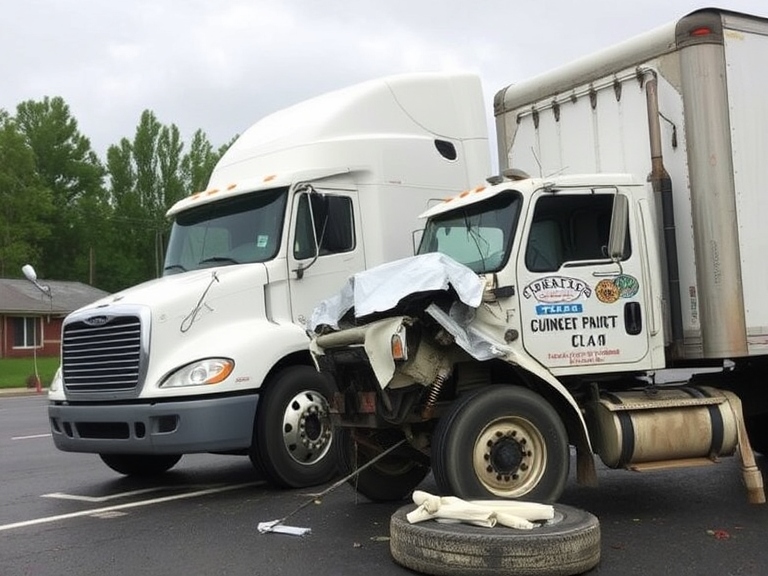Filing a car accident claim might seem like a straightforward task, but there are potential pitfalls that can complicate the process. People often find themselves overwhelmed by the procedures and decisions they must make shortly after an accident. For residents of Orlando and Central Florida, understanding the common mistakes to avoid can aid in managing a successful claim. Whether it’s dealing with insurance companies or the legal steps, knowing what to avoid helps ensure deserved compensation.
The sunny state of Florida sees a healthy amount of traffic, which unfortunately also leads to various accidents. When involved in a collision, it’s critical to be organized and mindful of every action you take. By being prepared, you can protect your rights and streamline the claims process. Let’s take a closer look at some typical mistakes to avoid when handling a car accident claim.
Common Mistakes To Avoid
Navigating the aftermath of a car accident is no small feat, and there are several mistakes that people commonly make, which can affect their claims. Here are five key points to keep in mind:
1. Delaying Medical Treatment:
Many people underestimate their injuries initially, opting to delay medical attention. It’s important to see a doctor promptly to assess any injuries. This step is not just about health; getting prompt treatment helps link your injuries directly to the accident. Additionally, in Florida, to have access to your “no fault” auto insurance medical benefits, you must seek treatment within 14 days of the accident.
2. Admitting Fault or Apologizing at the Scene:
Out of nervousness or courtesy, individuals often say things that can be interpreted as an admission of fault. It’s crucial to avoid statements of blame or apology until you’ve thoroughly reviewed the accident with a professional.
3. Not Gathering Enough Evidence:
Forgetting to document the accident scene can undermine your claim. Gathering sufficient evidence, like photos and contact information from witnesses, is vital. This data can make a significant difference in proving what occurred.
4. Failing to Report to Authorities and the Insurance Company:
Some choose not to report minor accidents, fearing insurance premiums will rise. However, not reporting can hurt your claim. Always notify the local police and your insurance provider promptly.
5. Accepting the First Settlement Offer:
Insurance companies may offer quick settlements that don’t fully cover the expenses incurred. It’s important not to rush into accepting an initial offer without assessing whether it reflects actual damages and needs. The insurance carriers are notorious for quickly sending a low-ball offer to unrepresented injured people to close out the claim and prevent a large payout.
Avoiding these missteps can help ensure that your claim process goes more smoothly and that you secure appropriate compensation. Understanding these points lays a solid foundation for achieving the best possible outcomes after a car accident.
Importance of Timely Medical Treatment
Following a car accident, seeking medical attention quickly is more than just looking out for your health; it’s a pivotal part of safeguarding your claim. Doctors can identify injuries that might not present themselves right away but could have serious implications later. By seeing a medical professional, you create a clear, recorded link between the accident and your injuries, which is fundamental for your claim.
Your health should be your top priority, but timely treatment also plays a role in the compensation process. Insurance adjusters may argue that delays in treatment mean your injuries aren’t severe or weren’t caused by the accident. By getting checked out promptly, you eliminate this argument, keeping your case strong and compelling.
Proper documentation from your healthcare provider will support your claim, outlining the necessary treatment and recovery processes. These records are essential when it comes to conveying the extent of your injuries to insurance companies.
Notwithstanding, in order to use your Florida “no fault” auto insurance medical benefits, you must treat within 14 days of the accident.
Proper Documentation and Evidence Collection
Capturing all the necessary information at the accident scene can significantly impact your claim’s success. Think of it like building a picture puzzle; each piece of evidence helps assemble the reality of what happened.
– Take Photos and Videos: Capture the accident scene from multiple angles. Document vehicle damages, road conditions, and any visible injuries you have.
– Collect Witness Information: Speak with potential witnesses and note down their contact information. Their accounts might offer insights that reinforce your version of events.
– Save Medical Records and Expenses: Keep detailed records of all medical visits, treatments, and expenses. These will be vital in determining the compensation needed for recovery.
Gathering thorough evidence not only makes your claim more credible but also prevents unnecessary delays. This step ensures that key details are not left to memory alone, which can sometimes be unreliable.
Navigating the Legal Process
Once you’ve gathered your medical records and evidence, the next step involves tackling the legal landscape. Consulting with a Florida car accident lawyer can be instrumental in avoiding common legal pitfalls. A lawyer can provide clarity on filing claims, ensuring that all paperwork and filings are handled correctly.
Having legal representation helps counter any attempts by insurance adjusters to undermine your claim. They often use tactics designed to minimize payouts, but with a legal professional by your side, you can address these challenges confidently.
Professional guidance can also help identify any additional claims you might be entitled to, beyond what you initially expected. The process of dealing with insurance companies becomes less challenging, knowing you have someone to explain procedures and fight for your best interests.
Summing Up the Path Forward
Reflecting on the steps we’ve discussed, taking immediate and thoughtful actions post-accident is crucial. From seeking timely medical attention to gathering necessary evidence and consulting a lawyer, each step helps reinforce your potential to achieve fair compensation.
Staying informed and prepared not only smooths the claims process but also minimizes stress during recovery. Every decision after an accident can have long-term impacts, so it’s important to make choices that protect your and your family’s future. By steering clear of common mistakes, you set yourself up for a more successful resolution, paving the way for healing and closure.
Seeking guidance from a reliable source can make a significant difference in your car accident claim. As you take steps to protect your interests, consider reaching out to Hines Law. Partnering with a trusted Florida car accident lawyer ensures you have the support and expertise necessary to navigate the challenges ahead.




